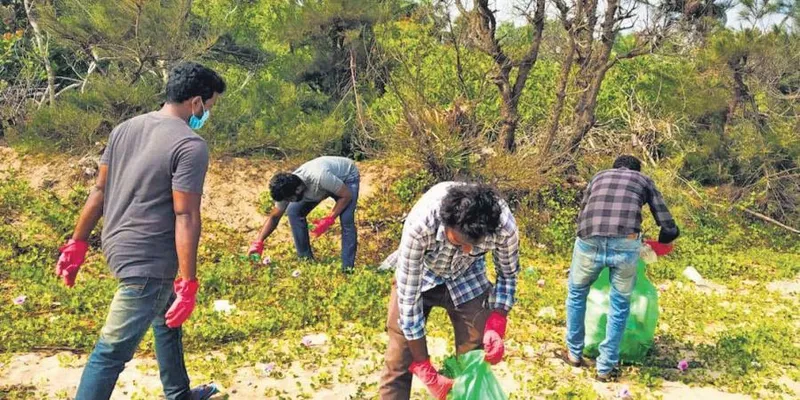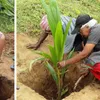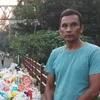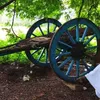Meet the unsung heroes conserving India’s natural resources
SocialStory brings you stories of people who are conserving natural resources and bringing about a positive change to help the world deal with climate change.
Given the global issues caused by climate change, it is easy to fall into despair about the future of our planet. However, individuals across the country are putting up a brave fight to preserve natural resources and create a more sustainable lifestyle.
SocialStory brings you stories of these unsung climate warriors.
Women of Western Ghats preserving seeds
In the heart of Western Ghats, in and around the town of Sirsi, women have joined a revolution that is aimed at promoting forest garden biodiversity and food security through the conservation of traditional or heirloom seeds.

Vanastree, a non-profit initiative was set up in the year 2001, with the aim to providing a dynamic platform for women gardeners, engaging children and youth in experiential learning programmes, documentation, and supporting a livelihood initiative for the members through the sales of value-added products from their home gardens, fields and forest.
Vanastree, or ‘women of the forest’, aims to do this by going back to our roots and preserving, promoting and spreading the use of traditional or heirloom seeds. Women farmers play a central and active role in both Vanastree’s initiatives and vision.
Chandra Kishore Patil guarding a river in Nashik
Nashik-based Chandra Kishore Patil has been standing guard over the Godavari for over six years now, trying to ensure that people do not dump their waste and trash into the river.

Chandra, who has been living near the river in Nashik, had started noticing the increasing contamination, especially after festivities. Six years ago, he decided to put a stop to this, and has been standing by the river all day to stop people from dumping waste into the river.
He makes a point by filling a bottle with water from the river and asking passers-by to drink it. When they refuse, he makes them aware of their actions and how they lead to severe water pollution.
Muthu Murugan provides a sanctuary for birds
Sixty-two-year-old Muthu Murugan has four acres of land in the Thondamuthur village in Coimbatore. He has devoted half an acre to growing sorghum and pearl millets for birds to eat.
The organic farmer has been enthusiastic about birds for a long time and used to sow the seeds along the borders of his farm. The number of birds visiting the village has reduced since many farmers have switched to cash crops. In fact, some of the farmers have chased away the birds with stones.

To counter this, Muthu invested about Rs 3,000 to raise birds, and at present, he has varieties of birds and other beautiful creatures, including parrots, waterfowls, peacocks, woodpeckers, kingfishers, spotted owls, sparrows, Mynah, lapwings, pigeons, partridges, munias, rabbits, worms, snails, bugs, grasshoppers, honey bees, butterflies, and more.
Anand Malligavad rejuvenating Bengaluru rivers
In 2015, Anand Malligavad read an article that Bengaluru was on the way to soon becoming a zero-water city like Cape Town.

Anand Malligavad
Anand decided that he wanted to do something to prevent the water scarcity. This set him on a path to rejuvenate Bangalore’s lakes. The first project that he undertook was the rejuvenation of Kyalasanahalli Lake (36 acres) near Anekal in 2017, the work of which was completed in 45 days.
Over the years till now, he has rejuvenated 12 lakes and work is in full swing on two others. Besides this, he has assisted others to rejuvenate four other lakes.
Youth of Mandasa
Most beaches in India have turned into a dumping ground for plastic and other waste, wreaking havoc on the local wildlife and the environment.

To solve this problem, a group of youngsters from Mandasa in the Srikakulam district of Andhra Pradesh decided to clean these polluted beaches and restore their beauty. Noticing how tourists had polluted the beach near the Ratti village in Mandasa, these youth took matters into their own hands.
The youth group organises clean-up drives to collect plastic and food waste left by visitors. Apart from cleaning the beach, the youth also worked towards raising awareness about hygiene during the pandemic.
Edited by Affirunisa Kankudti





![[Monday Motivation] Meet the man who left a lucrative job to rejuvenate lakes in Bengaluru](https://images.yourstory.com/cs/5/79900dd0d91311e8a16045a90309d734/MMAnandfeat-1642938046937.jpg?fm=png&auto=format&h=100&w=100&crop=entropy&fit=crop)




